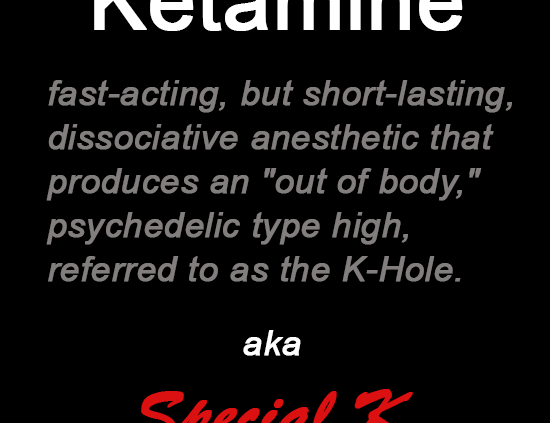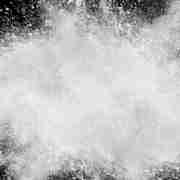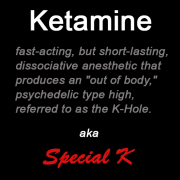What are Club Drugs?
Club drugs (also sometimes called Dance Drugs or Designer Drugs) are drugs which at one time were found most frequently in night clubs and at raves, but have since become some of the fastest growing drugs used by college students. These drugs include MDMA (ecstasy, E, or X), ketamine (special K), GHB, and crystal methamphetamine (speed, crank, crystal, tina).
What is ketamine?
Ketamine, known as Special K, Vitamin K or Cat Valiums, is an injectable anesthetic. It is most commonly used by veterinarians on large animals today. In the 1980s it began to be used recreationally as an intoxicant.
How is ketamine used?
Ketamine is either sold as a dry white powder or a clear liquid (in its original pharmaceutical packaging). The powder is made by drying the liquid. The residue from this drying process is then crushed and snorted in small doses (called bumps). In rare cases ketamine is injected intramuscularly or smoked with tobacco or marijuana. Whether smoked or snorted, the effects begin in a few minutes and lasts less than an hour.
Why do people take ketamine?
In large doses ketamine produces effects in humans similar to phencyclidine (PCP) such as dream-like dissociative states and hallucinations. It has a number of contradictory effects, including stimulant, sedative, anesthetic, and hallucinogenic properties. Users describe feeling like they are drunk, stoned, and tripping all at once.
What are the short-term dangers of taking ketamine?
Ketamine blocks the neurotransmitter glutamate at one of its receptors, causing a user to feel distanced from his/her environment. But ketamine also causes the user to feel euphoric and insensitive to physical pain. When ketamine is used as an anesthetic in humans, it is used with another drug to prevent hallucinations.
Are there long-term consequences to taking ketamine?
Because ketamine has only recently been used as a recreational drug, there are no studies available on its long-term effects. However, there is some anecdotal evidence that low-dose intoxication can impair learning ability, attention, and memory. Like other hallucinogens, ketamine can also cause severe flashbacks. Frequent use and higher doses can cause disruptions in consciousness, leading to neurosis or other mental disorders.
How do I recognize a problem with ketamine?
Some of the signs of problem use are:
More frequent use.
Needing more and more to get the same high.
Spending time thinking about ketamine.
Spending more money than you have on the drug.
Missing class, work, or failing to finish assignments because of ketamine use.
Making new friends who do it and neglecting old friends who don’t.
Finding it’s hard to be happy without it.
If you find that you can’t stop using ketamine, remember there’s help available.
Is ketamine addictive?
While no studies have been done to measure ketamine’s physically addictive properties, it is acknowledged, even by its proponents, to be psychologically addictive. Timothy Leary himself has described ketamine as the most powerful of psychedelic drugs. For people who want to feel dissociated from their environment, this drug can be dangerously appealing and there are many reported cases of addiction.
Is ketamine illegal?
Yes, taking ketamine is illegal and its possession, use, and sale carry heavy prison sentences and fines and disciplinary consequences at UCSC.
How do I help a friend who’s having trouble with drugs or alcohol?
If you are concerned about a friend’s drug or alcohol use, this page contains information about different ways to help them.







Leave a Reply
Want to join the discussion?Feel free to contribute!